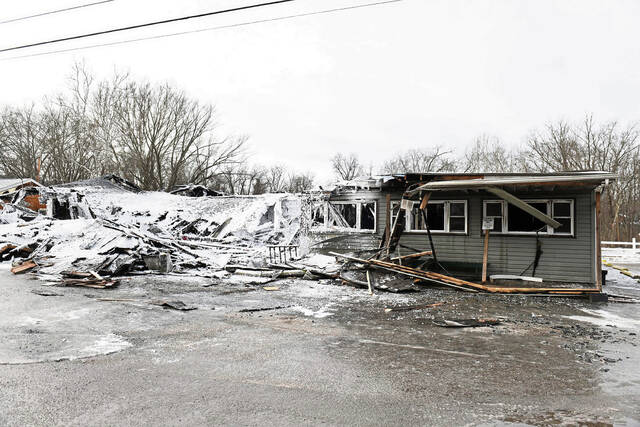Franklin Regional school board director Ed Mittereder compares the district’s construction-related bond debt to a series of car payments.
“We all look forward to the day when we pull that last coupon and make that last payment,” Mittereder said. “That sigh of relief comes the following month, when the money that was getting taken out of your checkbook is still there.”
Mittereder and board member Gary English hoped that analogy would translate into support for adding a sunset clause to the bond series the district has taken out to fund the $48.62 million Sloan “elementary campus” project.
It did not — the board voted 6-2 against adopting a sunset provision. Director Bill Yant abstained.
English said the proposal — which would require the district to calculate the millage equivalent of the annual bond payments and lower real-estate property taxes accordingly — was “simply a good-government policy that enforces transparency and accountability.”
Director Mark Kozlosky said the district’s budget has progressed steadily upward for the past two decades, made up of primarily fixed costs.
“There’s a steady progression of $1 million, $2 million each year, that it has increased,” Kozlosky said. “Whether it’s a (retirement system) problem, whether it’s a capital project, something always comes up, and it’s up to the board to allocate funds to address that problem.”
English viewed bond-related millage as a “hidden and unaccountable tax increase” once the bonds have been paid off.
“Once the bond is retired, there’s no longer money needed to pay for it, and that’s where the rollback is necessary,” he said. “Saying there are needs in the capital program, that needs to be looked at or voted on every year. But you’re relying on money that’s no longer being used for its intended purpose.”
The district has raised taxes in 14 of the past 15 years. The hikes are largely associated with rising fixed costs, primarily the state’s Public School Employees’ Retirement System, or PSERS. The state has mandated increasingly larger contributions from school districts, from 1.15% in 2002-03 to 34.51% in 2020-21, according to state documents.
Yant said he understood English’s position.
“We have become inured to yearly tax increases,” he said. “But you have to look at this as: once you have millage that’s been paid for a bond issue, that millage afterward essentially becomes a windfall.”
Annual payments through 2050 related to the bond, starting with the 2020-21 school year, range between $1.94 million and a high of nearly $2.75 million, according to the district’s payment schedule. Taking that average ($2.34 million) and dividing it by the current value of 1 mill ($354,000) would come out to roughly 6.6 mills. In 2018, district finance officials estimated the cost of financing the project would equate to roughly 5 mills, phased in over five years.
The value of a mill is recalculated each year, based on the number of tax-paying residents.
Director Paul Scheinert said the annual budget cycle allows the board to determine what to do about taxes.
“Back around 2013, the district passed a zero-millage-increase (budget), based on the fact that costs had not grown,” he said. “I feel there’s kind of an automatic process that will take into account the money that’s paid for bonds once those bonds are retired.”
Solicitor Gary Matta agreed.
“Let’s say that, whatever year it is, the district’s debt expires,” he said. “If the board decides to take on no further debt, and wants to decrease taxes, they could do that on a yearly basis.”
English had hoped to gain support for what he referred to as “taxation with expiration.”
“We must become the pioneer with this cutting-edge policy proposal,” he said. “When a school bond debt is retired, the associated increases with those bonds should be terminated as well.”








